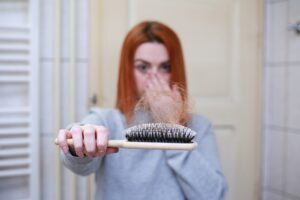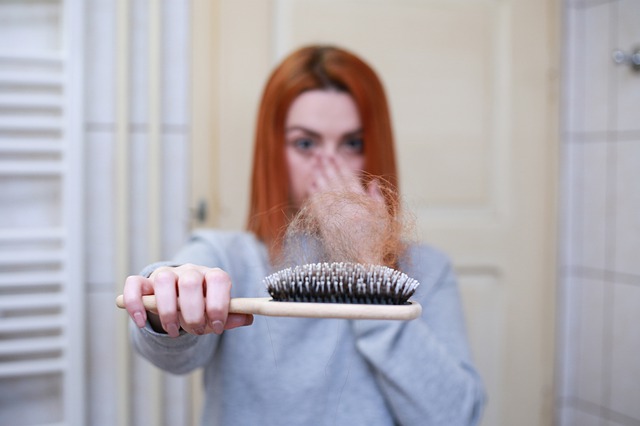
Can stress imposed by the current pandemic account for the increase in patient reported hair loss? To answer this, it must first be confirmed if stress-related hair loss can be explained by a scientific mechanism or if stress is just a catch-all etiology.
Recently published research is getting closer to a true understanding.
Approximately 25% of those who contract COVID-19 experience hair loss several months after the onset of symptoms, a phenomenon known as telogen effluvium.
A telogen effluvium is when some stress causes hair roots to be pushed prematurely into the resting state. Telogen effluvium can be acute or chronic. If there is some “shock to the system”, as many as 70% of the scalp hairs are then shed in large numbers about 2 months after the “shock”.
This phenomenon is also known to follow severe illness, childbirth, or intense physical and/or psychological stress. However, during the past 19 months of the pandemic, many clinicians also report an uptick of hair loss in patients who have not contracted COVID-19.
Various studies have reported that stress, specifically chronic psychological stress, plays a role in 75% to 90% of human diseases. Chronic stress has been anecdotally associated with hair loss in humans, but the underlying mechanism that links stress to hair loss remains elusive.
In many cases, no treatment is needed and the hair often grows back when the stress goes away. Recommendations to help include:
- Gentle handling of the hair, avoiding over-vigorous combing, brushing and any type of scalp massage
- Treat any underlying scalp disorder or hormonal problem determined, if any
- Ensure a nutritious diet, with plenty of protein, fruit and vegetables.
- Correct any abnormality in thyroid function, or levels of iron, vitamin B12 and folic acid.
If you have any questions or comments about this topic or would like a nutrition assessment, please contact us.
Be your best health!
Doc Sage,
Integrative Practitioner






